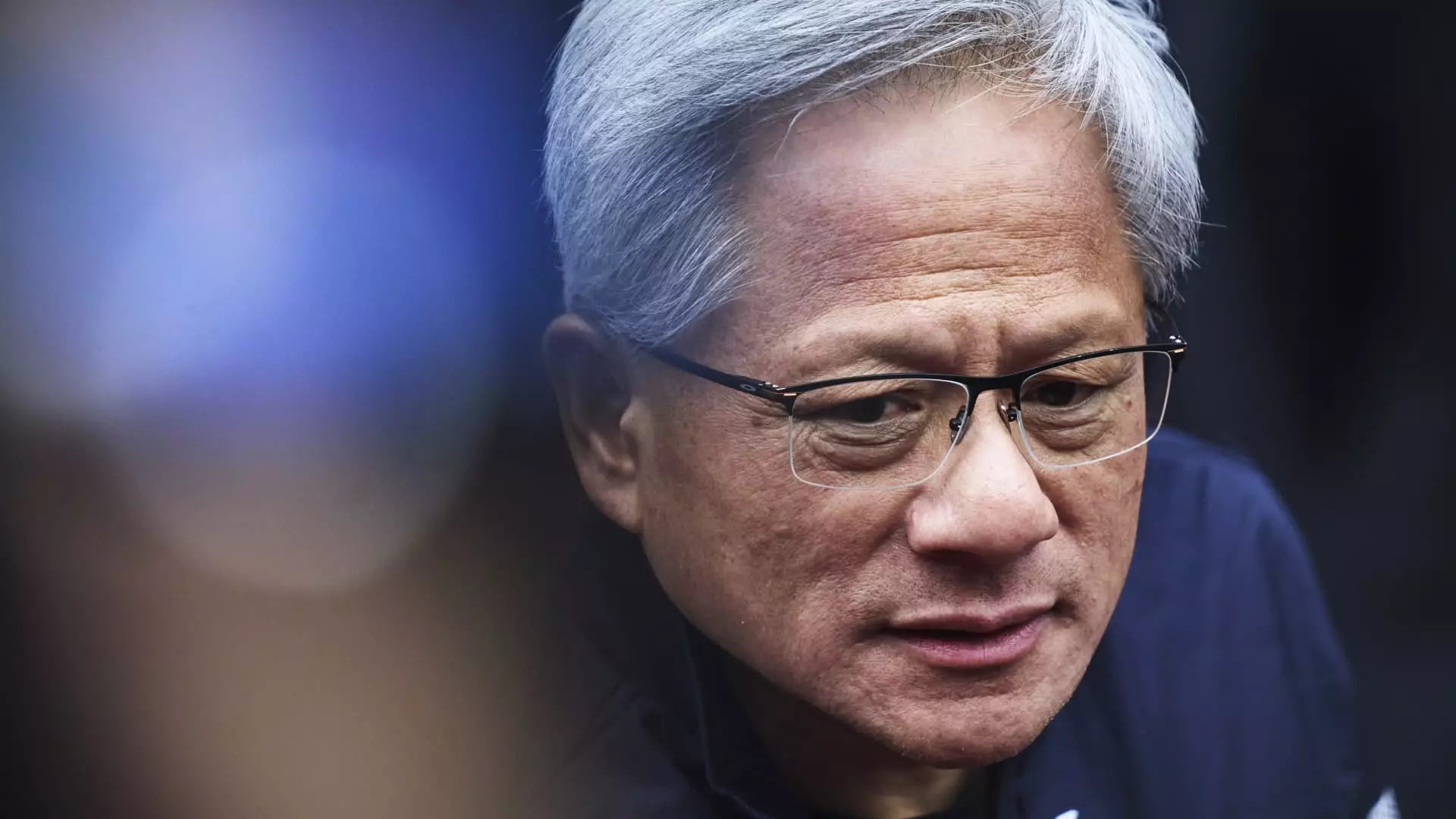In a significant meeting that underscores the evolving relationship between the tech industry and government, Nvidia CEO Jensen Huang is set to engage with President Donald Trump in Washington D.C. This gathering marks an important milestone as it’s the first direct interaction between Huang and Trump since the latter began his second term. The talks are anticipated to center around crucial issues related to artificial intelligence (AI) policy, a subject of growing interest and urgency in both sectors.
The proximity of tech leaders to political power is becoming increasingly pronounced. Huang’s conversation with Trump could serve to bridge gaps and facilitate an understanding of the complex landscapes of AI development, manufacturing, and export restrictions. Underlying this professional meeting are concerns that not only relate to Nvidia as a corporate entity but also tie into broader themes of international competitiveness and regulatory oversight.
As the third most valuable U.S. company, Nvidia holds a pivotal role in the global semiconductor industry, specifically in developing AI chips that power an array of applications. These components are fundamental to the advancement of AI technologies, making the outcome of Huang and Trump’s discussion highly impactful. Regulatory challenges loom on the horizon, particularly surrounding the United States’ export policies concerning AI technologies and chips to countries like China and Russia.
With the White House currently reviewing U.S. chip restrictions, the meeting serves a dual purpose. Firstly, it is an opportunity for Huang to advocate for Nvidia’s interests amid growing fears of how these restrictions might stymie international demand. Secondly, it offers both leaders a platform to deliberate on the potential for fostering a more robust and competitive U.S. tech industry, especially in light of recent initiatives aimed at promoting domestic production capabilities.
The conference is expected to tackle the ramifications of the Biden administration’s “diffusion rule,” which has significantly constrained chip sales overseas. This policy has drawn criticism from technology firms like Nvidia and Advanced Micro Devices (AMD), who argue that it may limit their growth potential in critical markets. Should Trump choose to overturn these regulations, it would signal a considerable shift in U.S. tech policy, with an emphasis on global industry engagement as opposed to isolation.
Furthermore, discussions around investments in U.S. chip production could lead to strategic partnerships that bolster local manufacturing capabilities. The ongoing efforts of the Commerce Department to revisit the CHIPS Act, which previously provided subsidies to tech giants for building foundries, align with the intentions of industry leaders to secure a stronger foothold domestically. Both Huang and Trump will likely explore pathways for revitalizing this initiative to support firms like Intel and Taiwan Semiconductor Manufacturing Company in expanding their U.S. operations.
In recent months, an array of technology CEOs have publicly aligned themselves with Trump’s administration. This realization occurs against a backdrop of political donations and collaborative efforts among industry titans such as Jeff Bezos, Sundar Pichai, Tim Cook, and others who participated in Trump’s inauguration. The setting illustrates a collaborative spirit among influential figures aiming to steward U.S. tech policy and economic growth amid fierce global competition.
With the emergence of Elon Musk as a prominent advisor, the intersection of corporate finance and governmental influence has never been clearer. By positioning themselves as key players within Trump’s advisory council, this blend of technology and politics could yield transformative policies and aid in navigating the complexities of AI development.
The imminent discussion between Jensen Huang and Donald Trump marks a potentially transformative moment for the tech landscape in the United States. As stakeholders like Nvidia tackle regulatory challenges and seek to establish secure pathways for growth, the outcomes of these discussions could reverberate through the industry for years to come. The interplay of industry and government will be critical in shaping the future of AI technology, manufacturing capabilities, and international trade relations, emphasizing the need for a synchronized approach that balances innovation with regulatory considerations.


Leave a Reply